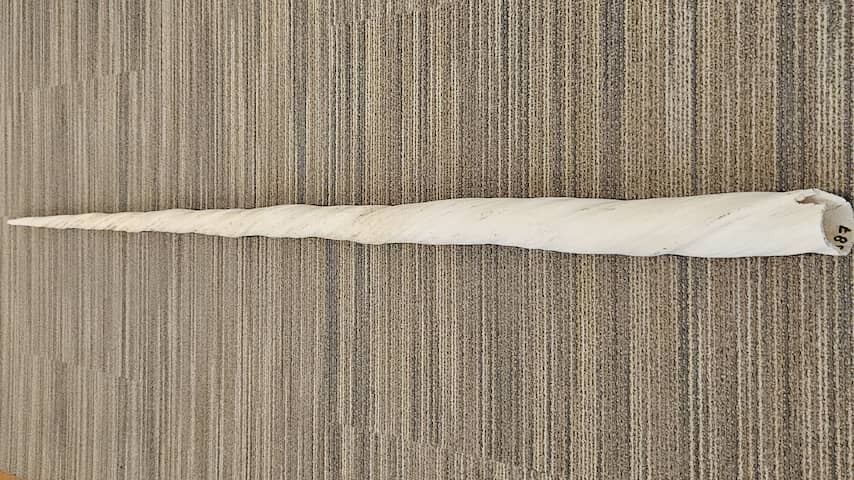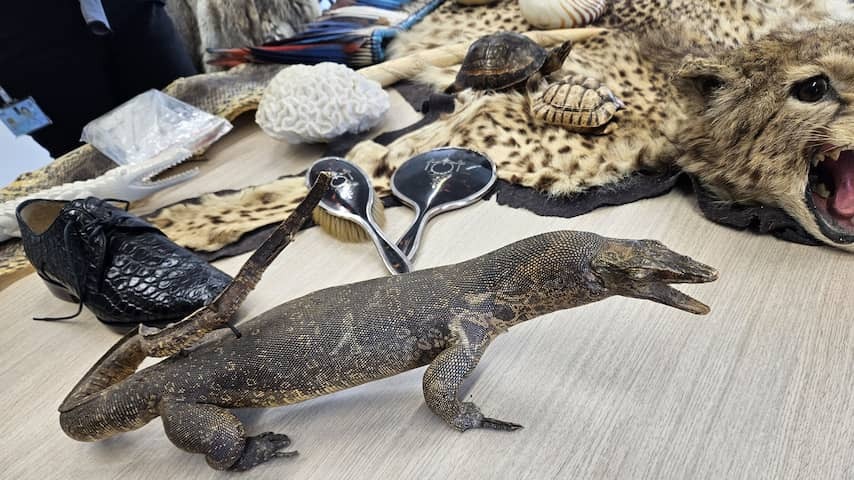
The Netherlands Enterprise Agency (RVO) received, among other things, a stuffed armadillo, the skin of a cheetah and the spiral tusk of a narwhal last year. People can hand in objects made from protected animal or plant species to the organization free of charge and anonymously.
People also handed in stuffed animals, fur coats, tortoise shells and parts of monitor lizards, anacondas, colobus monkeys, crocodiles and cobras. The bin also contained products from traditional medicine.
“We continue to be impressed by what people voluntarily hand in in terms of objects from endangered species,” says Jamie Bekkers of RVO on Tuesday. “In doing so, people are actively helping to prevent the law from being unintentionally violated by, for example, putting it up for sale without documents.”
Of the more than a thousand objects, the vast majority were made of ivory, such as bracelets, necklaces and figurines. The EU rules on ivory have been tightened since 1 January 2022. People are only allowed to have ivory from before 1947 at home if they can prove how old it is and where it comes from.
The RVO destroys most of the surrendered objects to prevent them from ending up in the (illegal) trade again. “A small part is used for educational purposes.”
The Netherlands is one of more than 180 countries that have joined a global treaty to control trade in endangered animal and plant species and protect the survival of animals and plants in the wild.
